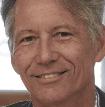Presuming that President Ramaphosa has a long-term plan reflects wishful thinking. Long-standing societal inequities provoke counterproductive policies entrenching pervasive poverty. Bleak prospects then inspire populist initiatives, such as “expropriation without compensation” (EWC), making adequate growth more elusive still. Breaking this cycle requires aligning SA’s politics and economics with global realities. But can Ramaphosa navigate a shift that contradicts the ANC's branded narrative?
The ANC’s legitimacy, branding, and its supporters’ loyalties trace to its having delivered majority rule. The covenant with its constituents then evolved toward legislating wealth and income redistribution.
Given SA’s historic inequities and geographic isolation, it was deemed acceptable to ignore global economic realities. This indulgence has become increasingly unaffordable.
Details of Zuma-era shenanigans continue to distract attention from a policy platform that precludes strong growth and broad prosperity. It is not yet clear whether Ramaphosa is willing, or able, to purge the ANC’s overly developed redistribution reflex.
SA lacks sufficient purchasing power to fuel a noticeable rate of poverty alleviation, meanwhile, aggressively reshuffling assets and jobs flattens growth prospects. Long ago, the ANC should have weaned itself away from over reliance on redistribution toward pro-growth policies. Instead, redistribution and patronage trended higher triggering nearly a decade of no growth in per capita income.
With Ramaphosa at the helm, corruption will likely decline sharply alongside per capita income stagnation giving way to modest growth. An extremely high level of poverty will, however, continue to wreak havoc on the economy through populists threats provoking uncertainty, instability, and concessions.
More than two decades after Ramaphosa helped overcome the politics that had induced a truly formidable poverty trap, a different set of politics and policies has provoked a fresh poverty trap to challenge his presidency.
Post-1994 redistribution of wealth and incomes - within manageable limits - was a political necessity, but two colossal errors ensued: the belief that redistribution could serve as a substitute for growth; and the related belief that redistribution could steadily reduce poverty. In recent years the point was reached where increasing reliance on redistribution began ratcheting SA’s growth and poverty alleviation trajectories ever lower. Poverty has actually risen in recent years.
The ANC inherited very high poverty and a poorly educated workforce. Progress on both counts has been meagre while many other countries have enacted vastly different policies resulting in global poverty having plummeted over the past 25 years.
Global competitive pressures limit the extent management roles, ownership stakes, and cash flows can be re-allocated to a newly empowered political constituency without causing undue economic harm. Those who most suffer from irrationally zealous quotas are the poor.
SA’s pol-econ disconnects are not exclusive to the ANC. At the most basic levels, SA’s economics, politics, and national dialogue are dysfunctional.
In recent decades, a great deal has been learned internationally about spurring growth and thus reducing poverty. Nearly all countries have accepted the benefits of global integration through specialising to add value to goods or services destined for large, affluent markets. This crucial insight rarely features amid SA’s policy discussions. Once again, SA is facing low growth as a consequence of rejecting global norms.
With virtually all adult South Africans, the portions of the brain that deal with social justice issues are covered with scar tissue. Cognitive clarity yields to guilt reflexes or restitution expectations. Such mental scarring mixed with geographic isolation increases tolerances for distortions and political opportunism. The ANC response undermined its interests and governing capabilities through excessively proselytising the redistribution religion.
SA’s national dialogue and political dynamics are blind to how the country has far too few affluent customers relative to its poverty volume. To think SA’s middle and upper classes can lift the poor out of poverty through just being more generous is a conceit born of economic ignorance.
Also, perceptions are rife that only higher skilled workers can achieve global competitiveness. Rather, a worker’s global relevance is determined more by specialisation and integration than placement along a skills hierarchy.
Given SA's recent “new dawn”, if the country isn't going to determinedly address its prospects and blockages now, almost all of the 30 million South Africans who get by on R33 or less per day will be condemned to a life of inescapable poverty. It doesn't need to be like that.
Progress and more equitable outcomes flow from people competing in pursuit of their aspirations. Governments across the world have accepted this reality; SA's ruling party defiantly rejects it. If Ramaphosa was in a position to change this, he would not be mired in the EWC debates.
Political rights are of questionable value if they don't unleash sufficient economic freedom to pursue one's passions. Today's many prosperous societies rely on neither coercion nor altruism; rather they align interests. Like colonialism, redistribution encourages political mischief while discouraging win-win cooperation. The western colonial powers gave up on colonialism, and Asia's emerging stars abandoned seeking recompense for past wrongs, as both options proved self-defeating.
Focusing on building and growth is the opposite of decrying, for political gain: colonialism, the West, and the evils of apartheid. Such castigating has congealed into an inward looking set of policies while prosperity today is predicated on value-added exporting.
Reliance on redistribution, expanding consumer debt, and depleting natural resources has been recklessly over played.
The policy pivots necessary to surge value-added exports run counter to many ruling party policy positions. SA’s poor need a workable growth plan which can unlock many millions of sustainable jobs.
As SA’s political leaders disdain competing globally,the vast majority of the nation’s young people will struggle, and fail, to achieve economic freedom. Alternatively, if the new president can shift the focus toward fully integrating into the global economy, the country’s bitter past need not hinder the next generation.
Shawn Hagedorn is an independent strategy adviser
@shawnhagedorn

